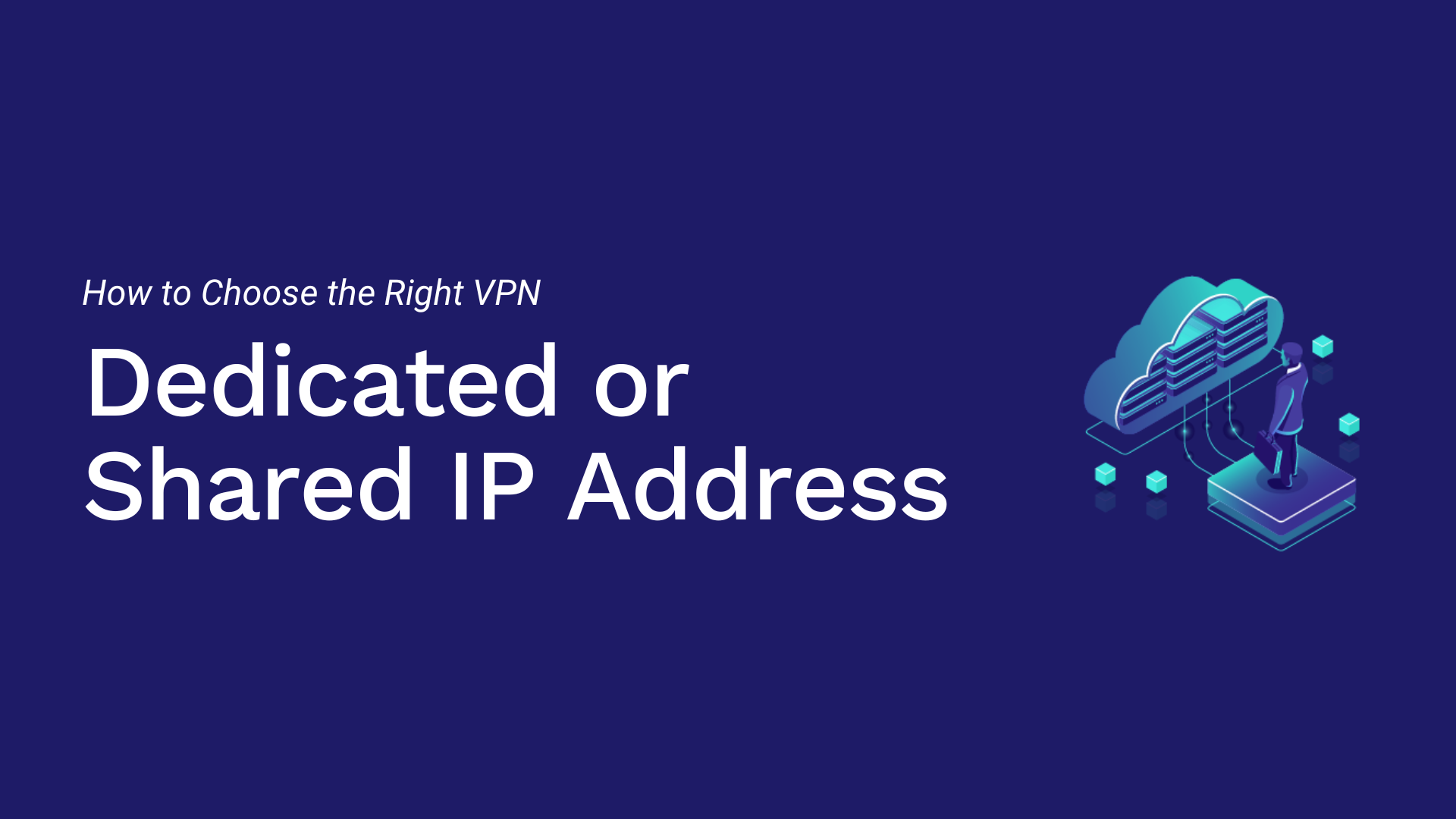
Dedicated or Shared IP Address:
How to Choose the Right VPN for Your Needs
When choosing a VPN, one of decision you will face is whether to opt for a dedicated IP address or use a shared IP address. Both options have advantages and cater to different needs. In this article, we’ll explore what these terms mean, their benefits and drawbacks, and how to decide which option is best for your situation.
What is a Dedicated IP Address?
A dedicated IP address is a static IP address assigned exclusively to one user by the VPN provider. This means that every time you connect to the VPN, you’ll use the same IP address, and no one else will share it.
Benefits of a Dedicated IP Address
1. Enhanced Online Reputation: Since the IP is used only by you, it’s less likely to be flagged or blacklisted for suspicious activity caused by other users.
2. Better for Remote Work: Many corporate networks and systems whitelist specific IP addresses for security. A dedicated IP ensures consistent access to these networks.
3. Smooth Online Banking: Banking systems often flag logins from frequently changing or suspicious IP addresses. A dedicated IP helps reduce the risk of account verification prompts or blocks.
4. Bypassing CAPTCHA: Shared IPs are more prone to triggering CAPTCHA challenges due to high activity levels from multiple users. A dedicated IP avoids this hassle.
What is a Shared IP Address?
A shared IP address is an IP used by multiple VPN users simultaneously. It’s the default option offered by most VPN providers.
Benefits of a Shared IP Address
1. Increased Anonymity: With many users sharing the same IP address, your online activity blends into the crowd, making it harder to trace back to you.
2. Cost-Effective: Shared IPs are typically included in standard VPN plans, making them more budget-friendly.
3. Dynamic Changes: The frequent rotation of shared IPs can make it more difficult for websites or services to track your online behavior.
Drawbacks of a Shared IP Address
1. Potential for Blacklisting: If another user engages in malicious or suspicious activity, the shared IP could be flagged or banned, affecting everyone using it.
2. CAPTCHA Challenges: High traffic from a shared IP often triggers CAPTCHA verifications on websites.
3. Slower Speeds: Since multiple users share the same IP, network congestion can lead to slower connection speeds during peak times.
Choose a Dedicated IP Address If You:
- Frequently access corporate or private networks requiring whitelisted IPs.
- Conduct sensitive activities like online banking or financial transactions.
- Need consistent, uninterrupted access to hosting services, email servers, or remote desktops.
- Want to avoid CAPTCHAs and potential IP blacklisting.
Choose a Shared IP Address If You:
- Prioritize online anonymity and blending into the crowd.
- Want a cost-effective VPN solution.
- Don’t require access to networks or systems that mandate a static IP.
- Are primarily using the VPN for casual activities like streaming, browsing, or bypassing geo-restrictions.
Conclusion
Both dedicated and shared IP addresses offer their own benefits and drawbacks. A dedicated IP is ideal for users who value reliability and stability, especially for professional or sensitive tasks. On the other hand, a shared IP is perfect for those seeking affordability, privacy, and casual usage.

 Cart is empty
Cart is empty